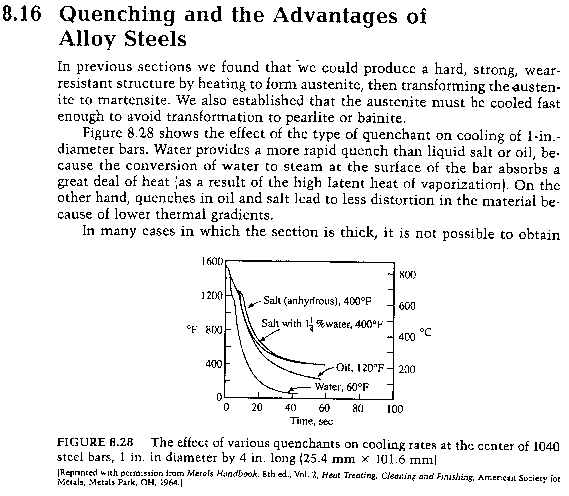
| Chronology | Current Month | Current Thread | Current Date |
| [Year List] [Month List (current year)] | [Date Index] [Thread Index] | [Thread Prev] [Thread Next] | [Date Prev] [Date Next] |
At 11:00 PM 5/30/00 -0700, Bernard G. Cleyet & Nancy Ann Seese wrote:
In two identical (well, from the same mold) goblets
equal masses of U.S.P. mineral oil
(edible) and olive oil 108 g.
temp rises (respectively) four C. degs. and 36
(note the glasses absorb, as the bases of
both were quite warm (~ 45 C.)
Smiths and home metalwork enthusiasts need to quench then temper
carbon steels.
The fastest rate is provided by cold water, then oil, and air cooling
serves for some alloy steels.
They note a difference in severity between mineral oil, the usual choice,
and vegetable oils. The latter have lower specific heat capacities, which
doubtless contributes to your finding.
Brian
brian whatcott <inet@intellisys.net>
Altus OK